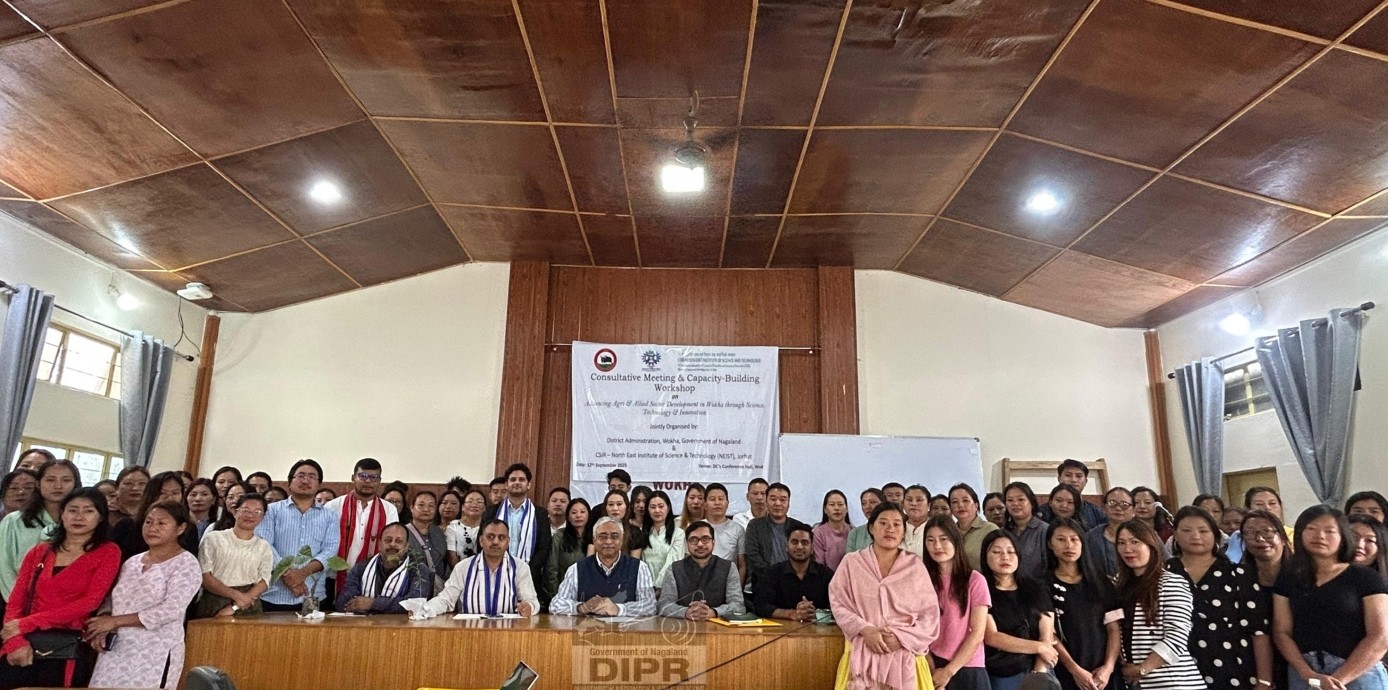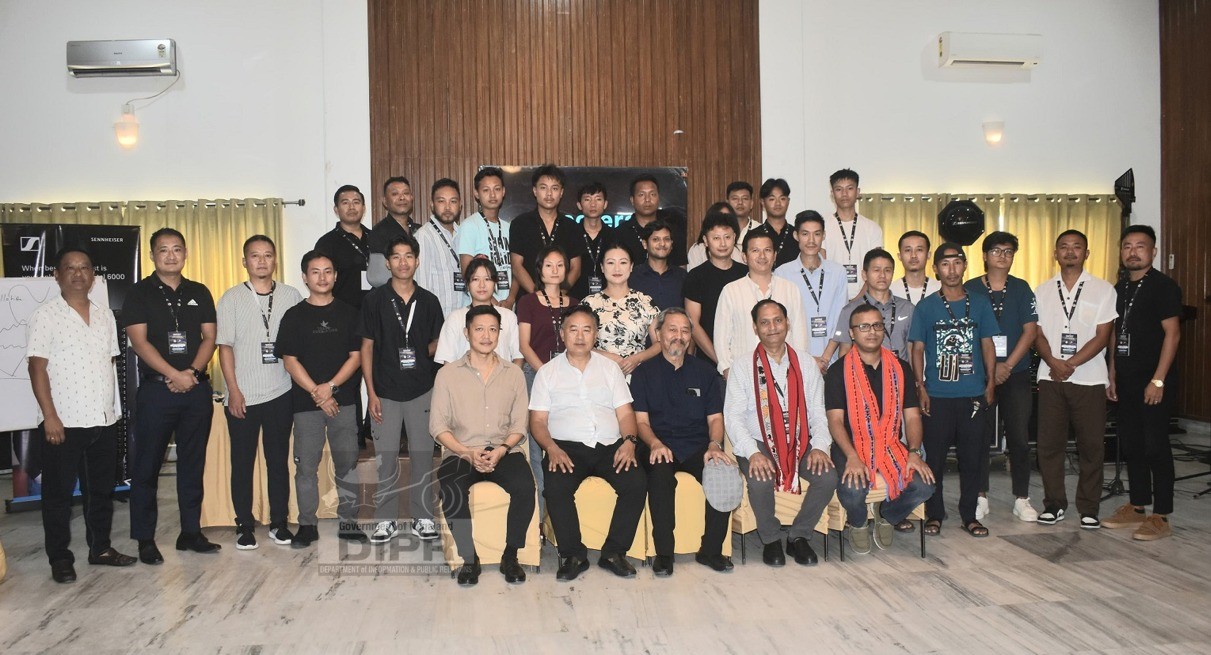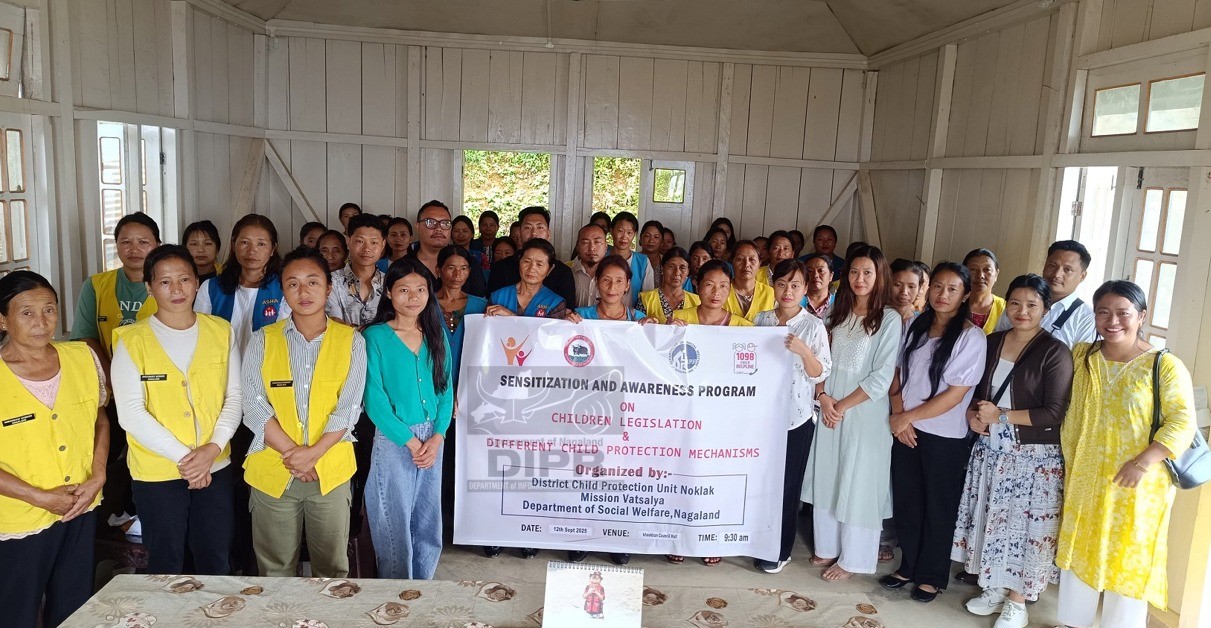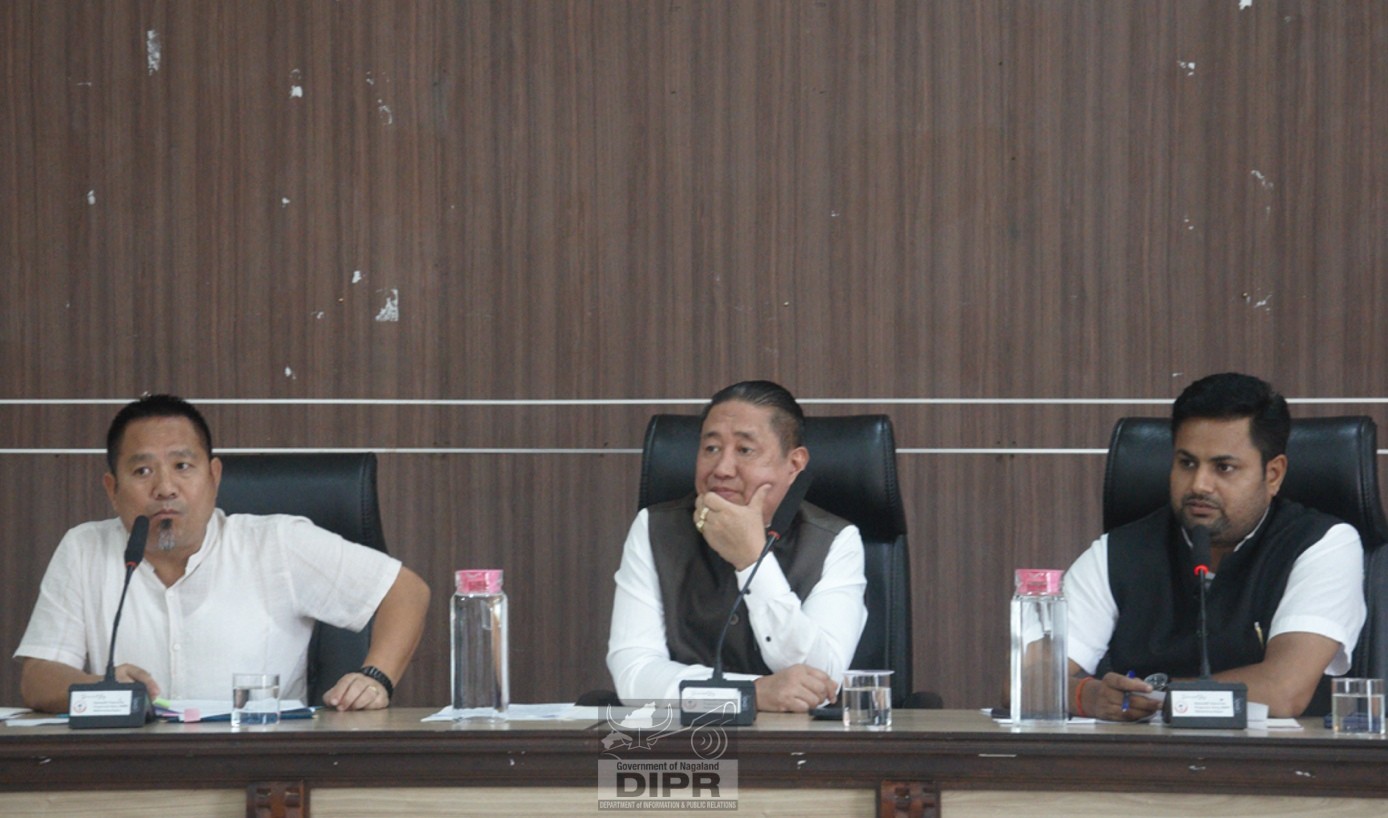The inaugural programme of the two-day International Association of Women in Radio and Television (IAWRT) Travelling Film Festival was held at the Centre of Excellence for Music and Arts (CEMA) at Old Minister's Hill, Kohima, on 2nd May 2025. IAWRT, a global network of 14 national chapters and members in 54 countries, is committed to the enhancement of women’s role and participation in media. It is a non-governmental organisation (NGO) in consultative status with the United Nations Economic and Social Council (ECOSOC).
Expressing delight to be visiting Kohima for the first time, independent journalist and an award-winning documentary filmmaker, Nupur Basu, stated that IAWRT, started in 1956, is an international organisation of women in film, radio and television. She added that internationally, IAWRT has around 500 women, and the India chapter itself has now claimed one-fifth of that membership.
Nupur Basu said that the IAWRT's 20th Asian Women's Film Festival was held in March 2025, at the India International Centre in New Delhi, celebrating 20 years of works of just Asian women directors exclusively.
Nupur Basu mentioned that the films which will be screened during the two-day festival will showcase a variety of themes, and display the passion with which each film has been crafted, so also the struggles of these filmmakers to take the films forward.
The IAWRT Travelling Film Festival has been held in 250 locations across the world, Nupur highlighted, adding that the importance of having these festivals and making these documentaries is because in mainstream media, the space for actual storytelling, unbiased, unfiltered, non-fake news has vanished.
President, Film Association of Nagaland (FAN), Yapangnaro Longkumer, extended gratitude to the Department of Information & Public Relations, Task Force for Music and Arts (TaFMA), Women Resource Development, Art & Culture, NSACS, for all the support extended to FAN and the IAWRT in organising the film festival. She mentioned that the idea of having film festivals is to hear the other voices, to hear alternative voices, and to showcase documentaries or films made by independent filmmakers. Since many filmmakers from Nagaland are not able to go outside and attend film festivals, having access to the IAWRT Travelling Film Festival and films being brought to our doorstep is an opportunity for film enthusiasts to experience cinema from different genres and countries.
Yapangnaro pointed out that since the present Naga filmmakers are the first batch starting in this field, there may be loopholes, but efforts are being made to create a cinema culture where people come and watch these films.
A musical performance was presented by Evan and Shanyei. Independent journalist and documentary filmmaker, Nupur Basu and documentary filmmaker and producer, Deepika Sharma, were also felicitated during the inaugural.
The two-day IAWRT Travelling Film Festival will showcase 14 (fourteen) films. Films such as Lovely & TipTop (Yuki Ellis), Anaar Daana/Sour Candy (Nishi Dugar), Bhangaar/Obsolete (Sumira Roy), Indu (Sameera Jain), My Grandfather’s House (Leylakhanim Ganbarli), The Call (Jyotsana Simha Thakuri), Blurred Boundaries (Imrana Khan), and We Were There (Sally Hllouby) were screened on the first day. A panel discussion on the topic ‘Films then and now – Understanding the narrative and shift in consumption,’ with Aparna Sanyal, a multiple award-winning documentary director and producer based in New Delhi, and Deepika Sharma, a documentary filmmaker and producer was also held on the first day of the film festival.
IAWRT envisages a global environment where the role and space of women in the media is fully recognized, is safe and secure, ensures freedom of speech without fear of online or offline trolling, where the potrayal and image of women is balanced and fair and where women have an equal share of positions at all levels in mainstream, digital and community media. Furthermore, IAWRT envisions a world where women have an equal voice, and space in community media (rural and urban), as citizen journalists and equal partners in agenda-setting, dialogue and debate.
(Mhonlumi, APRO)





